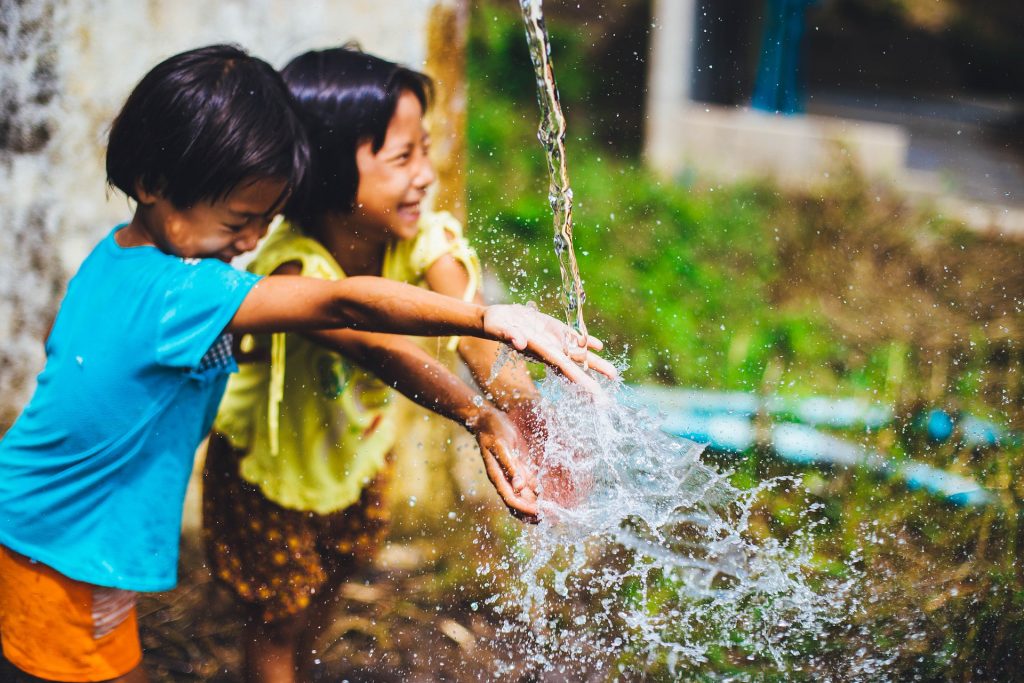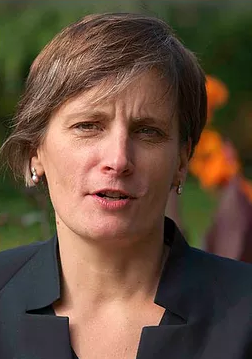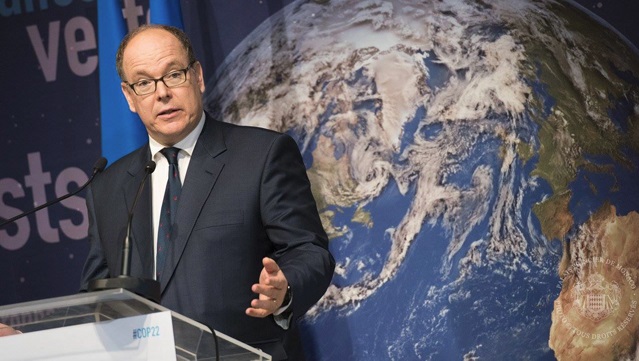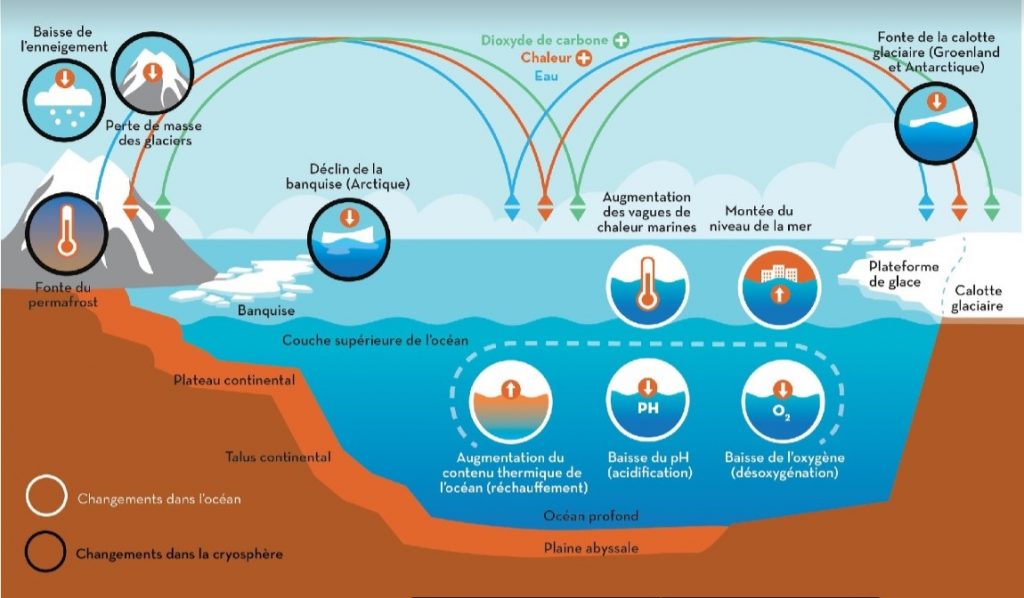IPCC SPECIAL REPORT
Special report on the ocean and cryosphere in a changing climate
- Accueil
- Actualités
- OCEAN AND CRYOSPHERE in a context of climate change
GIEC : 51st session in the Principality of Monaco
The Intergovernmental Panel on Climate Change (IPCC) held its 51st session in the Principality of Monaco on 20-23 September 2019, when it examined the Special Report on the Cryosphere in a Changing Climate (SROCC).
In the view of the IPCC, “Humanity depends directly or indirectly on the ocean and the cryosphere. Oceans cover 71% of the surface of the earth and represent 97% of the water on earth.”
The ‘cryosphere’ represents all the different components of the earth’s system that are frozen, on land and below ground, on the surface of the ocean and under the surface of the ocean. This includes snow cover, glaciers, the polar ice caps, ice floes (pack ice), icebergs, sea ice, ice in freshwater lakes and rivers, permafrost and seasonally frozen ground.
You can view a replay of the conference below.
WATCH LIVE - 11:00 CET ON WEDNESDAY 25 SEPTEMBER
25 September 2019: the results
The report was published at a press conference at the Oceanographic Museum de Monaco.
The IPCC in brief
The Intergovernmental Panel on Climate Change (IPCC) is an intergovernmental body that specialises in climate change sciences. It was created by the United Nations in 1998 and its aim is to provide political decision-makers with regular assessments of the state of scientific knowledge on climate change.
• Ocean & cryosphere in a changing climate (September 2019) : See Report (or click the button below to go to the IPCC website and access all its online resources)
The IPCC’s main assessment report comes out once every six years and separate special reports are released more frequently. Three special reports were published during the sixth and current assessment cycle:
• Global warming at 1.5°C (2018): https://www.ipcc.ch/sr15/
• Climate change and ground usage (August 2019): https://www.ipcc.ch/report/srccl/
The IPCC’s assessments are written by hundreds of international scientists, recognised for their expertise, before being submitted to the governments of the 195 member countries. The IPCC does not carry out its own scientific research, relying instead on existing publications.
The main challenges faced by human societies today are also associated with climate change [...]: the systemic effects of these phenomena have not spared a single area of the planet and constitute factors of environmental upheaval that exacerbate the imbalance in our oceans.”
S.A.S. le Prince Albert II de Monaco
The Prince Albert II Foundation (FPA2) acts in three priority fields:
- Limiting the effects of climate change and promoting renewable energies
- Preserving biodiversity
- Managing water resources and fighting desertification
Ocean and Climate Platform
Founded in 2014, the Ocean and Climate Platform (COP) is a coalition of scientists from different fields (researchers, NGOs, aquariums, French and international institutions, etc.).
It is the only French NGO to have participated in the editing of this new major report, and the COP now presents “Ocean and Climate Change: The Latest Challenges”, a booklet addressing 6 major themes tackled in this report: global warming, melting ice caps, rise in water levels, extreme events and deoxygenation.
An ocean in good health is a protected climate, and having a good understanding of these links of cause and effect is currently dictating our shift towards a sustainable world that respects all life.
• Spreading Knowledge sheets: Link to be added
• Scientific sheets: Link to be added
IO and POC: the IO is a founder member of the POC, is on its board of directors and is involved in compiling content.
VALERIE MASSON-DELMOTTE: UNDERSTANDING THIS REPORT
Valérie Masson-Delmotte, a climate expert, Co-Chair of an IPCC working group and member of the board of directors of the Oceanographic Institute, explains the links between the ocean and the climate.
Office for Climate Education (OCE)
Founded in 2018, the Office for Climate Education (OCE) aims to organise close international collaboration between scientific bodies, NGOs and educational institutions to educate present and future generations about climate change.
Below are the resources produced by the OCE to help gain a deeper understanding of the report:
• An educational guide to the resources of the ocean and the climate for primary and secondary school teachers. Link to be added
• Summary for teachers: Why issue a report about 1.5°C in warming?
• Training resources on the ocean and the climate.
• Training resources on the greenhouse effect: aimed primarily at teacher trainers.
The Oceanographic Institute aims to use communication campaigns to promote the OCE’s tools produced in connection with the ocean and climate change.

Feedback
We want people to remember that the issue is a serious one, but that we can do something to make progress and face the challenges. France has set itself the objective of becoming carbon-neutral by 2050, and for the time being emissions are not falling quickly enough.









